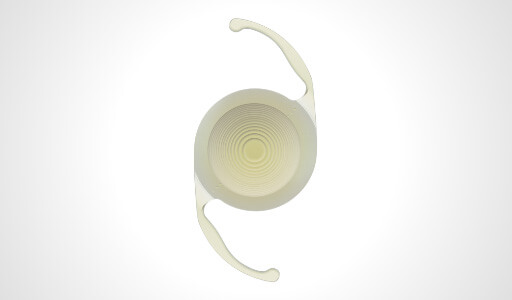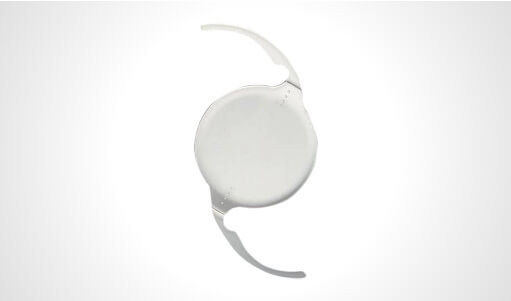Home » Cataract Surgery
Cataracts are one of the most common eye conditions treated by ophthalmologists and usually occur as part of the normal aging process. St. Luke’s surgeons have been trailblazers in the innovations that make cataract surgery one of the safest and most regularly performed surgeries in the United States.
A cataract is a clouding of the eye’s natural crystalline lens. The lens is responsible for focusing light and producing clear, sharp images. When we’re young the lens is clear but as we age, it begins to harden and become cloudy. The cloudy lens diminishes quality of vision. Common symptoms of cataracts are:

Cataracts are treated with surgery to remove the clouded lens, and are replaced with a new, clear intraocular lens implant. The surgery is performed through a tiny incision on the side of the cornea. In some cases, our surgeons may use a laser to perform some of the elements of the surgery resulting in an even gentler, more precise procedure. After the cataract is completely removed, the surgeon replaces it with a prosthetic intraocular lens or IOL, which allows light to focus clearly again.
When planning your cataract surgery, your doctor will discuss the different intraocular lenses available to achieve your visual goals. Our surgeons use the most advanced lens technology available, and will work with you to ensure that you receive the lens best suited to your specific needs.

(Light Adjustable Lens, Panoptix, Panoptix Toric, Vivity, Vivity Toric)
Our Auto Focus option is our most advanced lens package. It provides the greatest flexibility in your vision and is designed to help you see clearly at both near and far distances, with the highest level of freedom from glasses available. Your eyeglass prescription will be built directly into your new, permanent lens implant, helping you enjoy life with maximum visual independence.

Our Fixed Focus option includes either astigmatism correction (if applicable) or our basic lens option.
If you have astigmatism, we can correct it, allowing you to see clearly at one focal point (usually distance) without glasses.
If you do not have astigmatism or choose not to correct it, this becomes our basic lens option. Your vision will be improved with surgery, and your remaining prescription will be corrected in your glasses afterward.
– The Refractive Surgery Council
Our Recommendation for Your Surgical Plan

The most independence from glasses with the fullest range of focus.

Overall clarity will be improved, but may still require glasses for best results.
Cataract surgery offers numerous benefits, significantly enhancing the quality of life for those who undergo the procedure. Here are some of the key advantages:
Improved Visual Clarity: The most immediate benefit is a significant improvement in visual clarity. Many patients report bright and clear vision shortly after the surgery.
Enhanced Color Vision: Cataracts can dull and yellow your vision. After surgery, colors may appear brighter and more vivid than they have in years.
Increased Independence: With the restoration of clear vision, many patients find a renewed sense of independence, being able to drive, read, and perform other daily activities without the limitations caused by cataracts.
Better Quality of Life: Improved vision contributes to a better overall quality of life. It can reduce the risk of falls and accidents associated with poor vision and improved mental health by possibly allowing for more social and physical activities.
In addition to life changing vision, St. Luke’s highest priority is safety in the care of our patients. In fact, our surgical center has a significantly lower incidence of eye infection and other surgical complications than the national average. Our innovations include:
Filtered solutions – To further reduce the risk of infection, the infusion solutions used during surgery first pass through special filters before reaching the eye.
Antibiotics and anti-inflammatory solutions – Specially formulated antibiotics are added to anti-inflammatory solutions and placed directly in the eye after surgery, greatly reducing the risk of postoperative infection.
Balancing medications – We neutralize the PH level in medications used during surgery to reduce irritation, dryness and discomfort. This makes the surgery and recovery more comfortable.
Ultraviolet lighting – When operating rooms are not in use, special ultraviolet lighting is activated to reduce bacteria. This is the same type of lighting used in cardiovascular units.
Eye pressure checks – Your eye pressure is checked in the first two hours following surgery to ensure that the incision is tightly sealed. Special instruments are used during your surgery to help alleviate the risk of postoperative pressure rise.
At St. Luke’s, cataract surgeries are performed in our Ambulatory Surgery Centers in Tarpon Springs and Wesley Chapel. Pre-op and follow-up appointments are available in Tarpon Springs, St. Petersburg, Tampa, Spring Hill, Clearwater and Wesley Chapel.
A better quality of vision means a better quality of life for our patients. Our history of innovation, thoughtful adoption of new technologies, and unsurpassed commitment to care truly gives our patients the best opportunity to achieve their vision goals. St. Luke’s has some of the most experienced cataract surgeons in the world. You’re in great hands here.
We proudly serve patients at our eye clinics in Tarpon Springs, Tampa, St. Petersburg, Clearwater, Spring Hill, Wesley Chapel and in The Villages at Lake Sumter Landing and Brownwood. Our philosophy is to treat those we serve as though they are a member of our own families. From the first phone call or email to the follow-up visit and beyond, we’re here to serve you. Our goal is to help preserve and optimize your vision.

